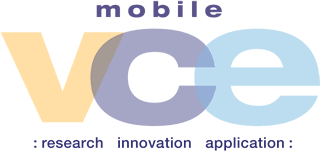Impact – Health, Transport, Energy
Industry sectors such as health, transport, energy, education – and others – have one major common factor – people and their needs. These are understood by the players that live in these worlds and serve these markets. Digitally delivered services still have to be delivered to real people in the physical world.
These industries represent massive global markets, in which technology is already, and increasingly, an important enabler. Many companies recognize the potential of technology, but lack the in house resources to monitor and appreciate the future trends and the full implications for their business activities, in terms both of opportunities and threats.
In many ways this is no different from VCE’s traditional member companies, and explains the reason why VCE has established its Industry Visions activity. Every company inevitably sees the world from its own perspective; bridging companies, and indeed bridging industries, in an open, precompetitive culture, offers an opportunity to look ahead and to develop a shared view of new possibilities, which companies can then combine with their own unique strengths and partnerships, to bring new propositions and business models to market.
Companies in these application sectors understand their customers and their needs much better than their technology suppliers. They understand the culture of their markets, the market dynamics and the balance of opportunity and cost. However, resource restrictions can mean that disruptive innovative potential can remain overlooked until late in the day, resulting in missed opportunities to save costs or generate new revenue streams. Creating truly transformational services require two types of knowledge – knowledge of customer needs and knowledge of what emerging technology will allow.
How might emerging wireless ICT transform such industries ?
Health – Healthcare cost trends are unsustainable in the Western world, and such approaches are inaccessible for developing economies. This is driving R&D towards low-cost diagnostic and analytical sensors, with clear benefits of early diagnosis and disease prevention over treatment and cure. In the West, wellness has already emerged as a growing market, and one where wireless is playing a role. As low cost biological, chemical, physiological and behavioural sensors become incorporated into phones, their linkage with backend databases that allow statistical analysis and comparisons will both support illness prevention and also crowdsourcing of diagnostic data, opening up new multi-sided business models, involving both the private sector and Governments, changing industry economics.
Transport – Implementation of multimodal travel, optimization of resource usage, safety and other aspects of transport increasingly rely on communications. Transport implies people and vehicles that are moving, which implicitly requires wireless connectivity. Crowdsourcing of dynamic contextual information on personal location is already enabling online assessment and publication of congestion, but this is the tip of the iceberg. Interconnectivity and fusion of multiple data streams will allow much more. Again, the key to new business models is the fusion of multiple information streams derived from operator, online and realtime resources.
Energy – The energy industry is undergoing a transformation not unlike that experienced by telecommunications in the 1980s, when it was faced with large technology shifts (from mechanical Strowger switches to digital switching, from simple copper wires to wireless, and the advent of the Internet) and significant regulatory change (from a single telecoms operator to multiple operators, from national purchasing, to international competition). Moves to reduce CO2 emissions are resulting in both types of change today. There are lessons to be learned from how the telecom industry handled its transitions (not always well). The need for realtime, dynamic, energy consumption, prediction and analysis data again implies a role ubiquitous connectivity – but as in the other industries, a solution developed based outside of the existing industry knowledge will fall far short of delivering the full potential.
Delivering Digital to transform industries will require leveraging the resources of the ICT industries with those of the application industries. We see it as being about reaching people in the real world in which they live their daily lives, improved physical transport services, ways to stay healthy and management of energy and the environment in a manner that fits with and enhances their lives.
Humanity has lived through agricultural, industrial and information revolutions. Today we stand at the threshold of a new phase – an age where information and communication can be deployed together to enable efficient ways of living to ensure a sustainable physical environment.
